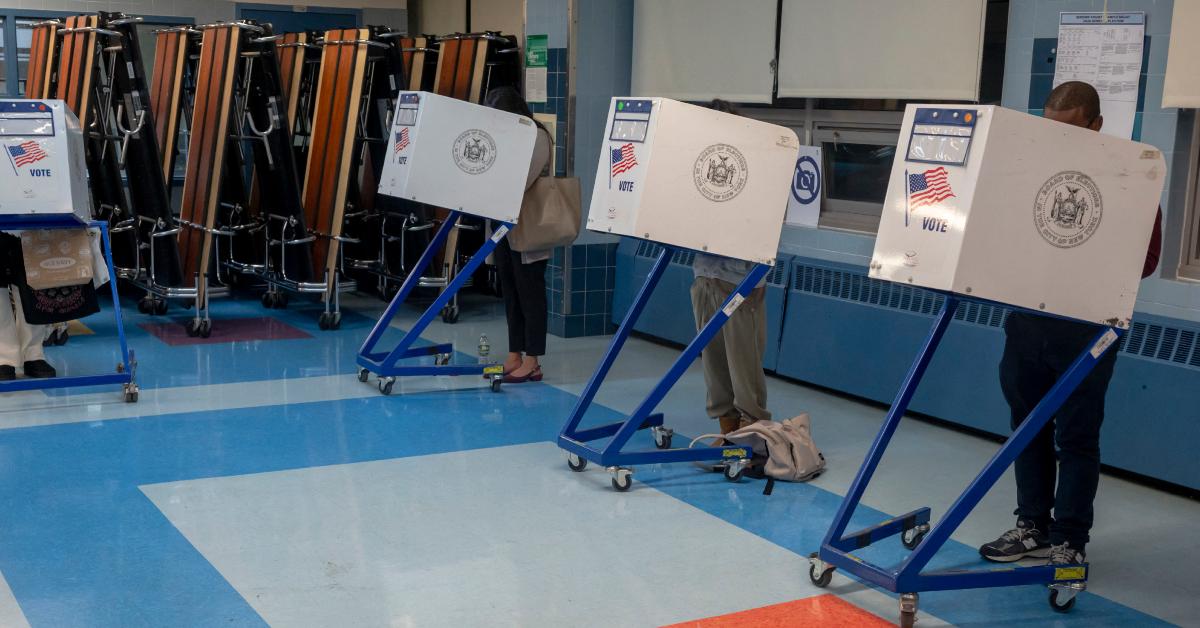The History and Impact of The "Hanging Chad" on Elections and Voting Systems
"Hanging chads" played a significant role in the 2000 U.S. presidential election.
Published Nov. 6 2024, 3:42 p.m. ET
In the world of elections and voting systems, certain terms come and go. However, some manage to stick around — often for reasons we don't expect. One such term is "hanging chad," which has sparked curiosity and confusion since it first entered public discourse.
Though it sounds like something out of a science fiction story, it actually refers to a real-world issue that affects how votes are counted.
So, what is the meaning of "hanging chad"? Here's what you need to know.

What is the meaning of a "hanging chad"?
For those unaware, a "hanging chad" is a term used to describe a small piece of paper that remains partially attached to a punched ballot after a voter has cast their vote. The phrase derives from the use of punch-card voting systems, which were once common in elections.
In this system, voters would insert a card into a machine and use a stylus or other mechanism to punch out a hole next to their chosen candidate. The punched-out piece of paper is known as a "chad." Ideally, the chad would fall completely out, leaving a clean, clear hole that represents the voter's choice.
However, when the punch doesn't go through completely, the chad remains partially attached, or "hanging," from the ballot. This incomplete detachment could result in the vote being unclear or uncounted, as the machine may not register the selection, or election officials may have difficulty determining the voter's intent.
If you remember, "hanging chads" played a significant role in the unusually high number of invalid votes in Florida during the 2000 U.S. presidential election. These hanging chads occurred when the punch-card ballots used in the election didn't fully detach, leaving small pieces of paper still attached to the ballot.
As a result, some votes were not counted correctly, and many ballots were deemed incomplete or spoiled because they did not clearly indicate a choice for the required number of candidates. This issue, which caused widespread confusion and a protracted recount process, underscored the flaws in the punch-card system and sparked national debates over voting technology.
In response, the U.S. made significant investments in electronic voting systems, including touch-screen machines and optical scanners, to improve accuracy and streamline the voting process. Despite these advancements, elections continue to face challenges, ranging from technical glitches to concerns about security and voter accessibility.
A Kentucky county clerk faced backlash for dressing as a "hanging chad" on Halloween 2024.
On Thursday, Oct. 31, 2024, a Kentucky county clerk apologized for dressing up as a "hanging chad" for Halloween. In a since-deleted photo obtained by Fox 56, the clerk, whose name is Tony Brown, can be seen wearing a red shirt that reads, "Hi! I'm Chad," and posing with a noose around his neck.
The costume quickly drew backlash, with many calling it "distasteful" and "unprofessional." In response, Brown issued an apology on Facebook late Halloween night.
"I want to apologize for my Halloween costume today," he said. "I was trying to be funny and make a joke about Bush/Gore election and I did not think about how that could be offensive and insensitive. It was poor judgment on my part and I am truly sorry that I hurt people I care about."
